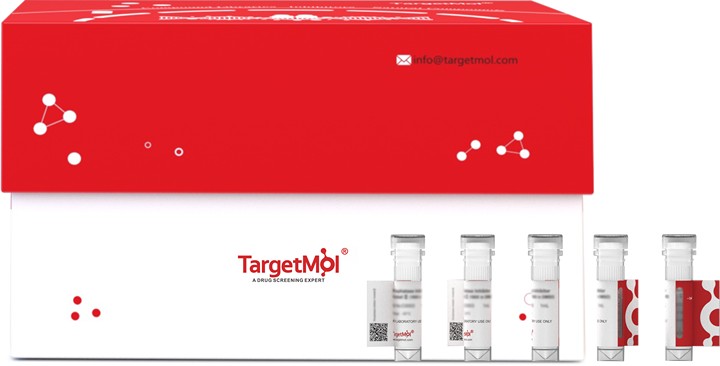Shopping Cart
- Remove All
 Your shopping cart is currently empty
Your shopping cart is currently empty

Cathepsin C Protein, Mouse, Recombinant (His) is expressed in HEK293 Cells. The accession number is P97821.

| Pack Size | Price | Availability | Quantity |
|---|---|---|---|
| 50 μg | $588 | Backorder | |
| 500 μg | $3,880 | Backorder |
| Biological Activity | Activity testing is in progress. It is theoretically active, but we cannot guarantee it. If you require protein activity, we recommend choosing the eukaryotic expression version first. |
| Description | Cathepsin C Protein, Mouse, Recombinant (His) is expressed in HEK293 Cells. The accession number is P97821. |
| Species | Mouse |
| Expression System | HEK293 Cells |
| Tag | C-His |
| Accession Number | P97821 |
| Synonyms | DPPI,DPP1,Ctsc,CatC |
| Construction | A DNA sequence encoding the mouse CTSC (NP_034112.3) precursor (Met1-Leu462) was expressed with a polyhistidine tag at the C-terminus. |
| Protein Purity | ≥ 95% as determined by SDS-PAGE. ≥ 90% as determined by SEC-HPLC. |
| Molecular Weight | 51.2 kDa (predicted); 51.2 kDa (reducing contition) |
| Endotoxin | < 1.0 EU per μg of the protein as determined by the LAL method |
| Formulation | Supplied as sterile 20mM MES, 150mM Nacl, 10% Glycerol, 0.02% Tween 20, 10% Trehalose, pH 5.5. Please contact us for any concerns or special requirements. Please refer to the specific buffer information in the hardcopy of datasheet or the lot-specific COA. |
| Stability & Storage | It is recommended to store recombinant proteins at -20°C to -80°C for future use. Lyophilized powders can be stably stored for over 12 months, while liquid products can be stored for 6-12 months at -80°C. For reconstituted protein solutions, the solution can be stored at -20°C to -80°C for at least 3 months. Please avoid multiple freeze-thaw cycles and store products in aliquots. |
| Shipping | In general, Lyophilized powders are shipping with blue ice. Solutions are shipping with dry ice. |
| Research Background | Cathepsins are proteases found in many types of cells conserved in all animals, which have a vital role in mammalian cellular turnover such as bone resorption. The lysosomal cysteine protease Cathepsin C (CTSC), also known as dipeptidyl peptidase I (DPPI/DPP1), activates a number of granule-associated serine proteases with pro-inflammatory and immune functions by removal of their inhibitory N-terminal dipeptides. This lysosomal exo-cysteine protease belonging to the peptidase C1 family. Active cathepsin C is found in lysosomes as a 200-kDa multimeric enzyme. Subunits constituting this assembly all arise from the proteolytic cleavage of a single precursor giving rise to three peptides: the propeptide, the alpha- and the beta-chains. It is a central coordinator for activation of many serine proteases in immune/inflammatory cells. Defects in the Cathepsin C have been shown to be a cause of Papillon-Lefevre disease, an autosomal recessive disorder characterized by palmoplantar keratosis and periodontitis. Cathepsin C plays a key role in the activation of several degradative enzymes linked to tissue destruction in inflammatory diseases. Thus, it is a therapeutic target for the treatment of a number of inflammatory and autoimmune diseases. |

Copyright © 2015-2025 TargetMol Chemicals Inc. All Rights Reserved.